Code, commands, and canines: The growing role of AI in pet care

Key insights:
- Some 21% of pet parents are turning to ChatGPT for immediate advice, while 25% trust AI to diagnose their pet’s symptoms as accurately as a human vet.
- Likewise, 39% of pet owners would be willing to use AI to train their dogs, with 44% believing AI-powered training could make pet ownership more affordable.
- Some 31% believe AI is better at spotting early signs of distress in dogs, while 49% believe the technology will enable owner-pet communication.
- Despite fears around AI’s lack of intuition and its struggle to consider unique needs, 80% of pet parents have experienced no issues turning to ChatGPT for pet care advice.
Artificial intelligence is reshaping every industry, and pet care is no exception. AI-powered tools are quickly becoming part of the daily routine for pet owners. Keeping a close eye on the health of our pets, wearable technology is now widespread, automated feeders manage the kibble, and algorithms are matching prospective owners with their pawfect companion.
While AI’s ability continues to come on leaps and bounds, it raises a question: are pet parents ready to hand the leash to AI?
Woofz surveyed 2,000 dog owners on their sentiment towards AI in pet care. The results show that while pet parents are approaching AI with caution, its potential to make pet care and advice more affordable and accessible has set tails wagging.
AI and animal care: The rise of the virtual vet
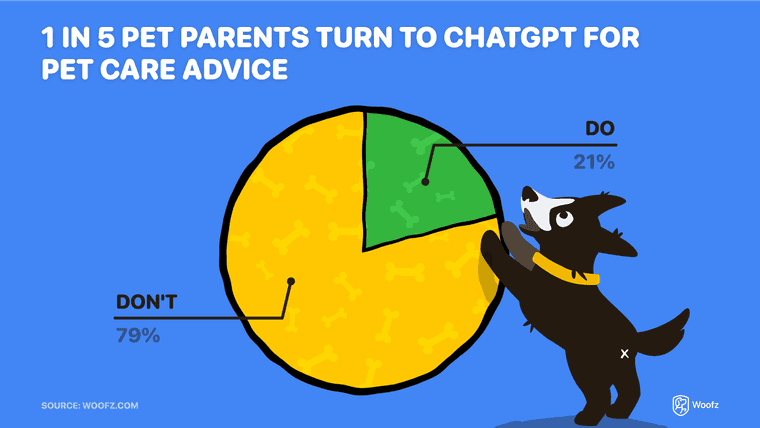
There’s nothing worse than an agonizing wait for a vet consultation when your fur baby is distressed. Desperate to know what their symptoms mean, 21% of pet parents are turning to ChatGPT for immediate advice. While not a substitute for professional care, AI can offer peace of mind during those anxious waits.
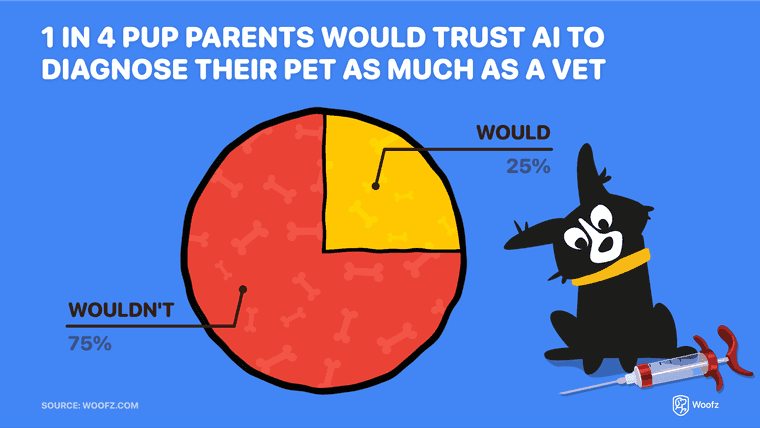
ChatGPT doesn’t always get it right, yet humans aren’t immune to error either. Whether down to convenience or cost, 25% of dog owners are open to putting their faith in tech, admitting they would trust it to diagnose their pet’s symptoms just as accurately as a human vet.
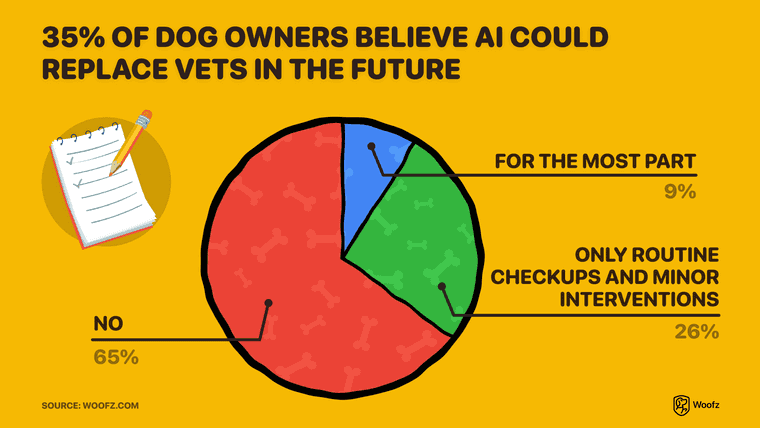
From tracking behavior to flagging changes in critical health data, algorithms are already stepping into the exam room. But where’s the line for AI in veterinary medicine? Will AI replace vets entirely or remain a veterinary virtual assistant? Some 9% of pup parents believe it will take on the bulk of care, while 26% expect it to take charge of routine checkups.
Barking orders: Growing interest in AI dog training
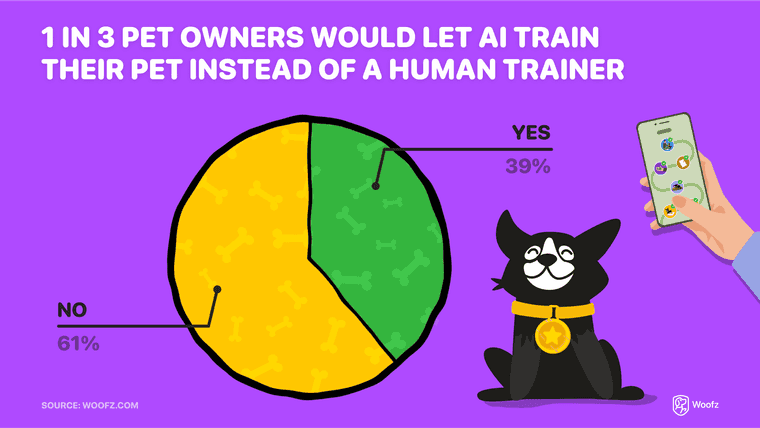
The veterinary field might be safe for now, but when it comes to training? Algorithms are taking the leash. Some 39% of pet owners admit they’re ready to embrace AI as their go-to dog trainer, turning to smart tech to correct problem behaviors and teach their pup new tricks.
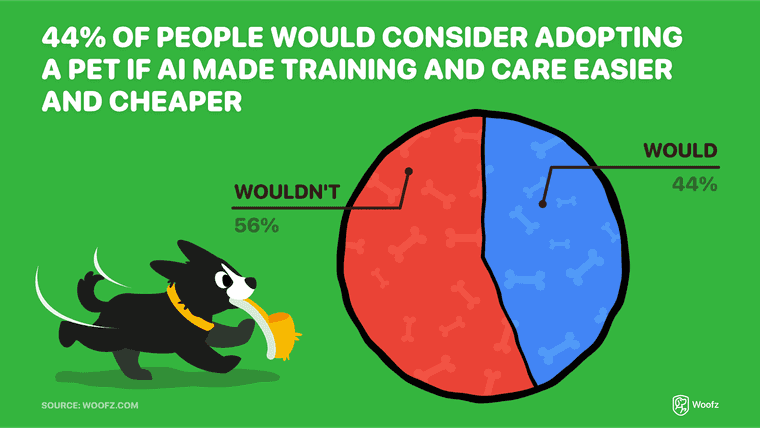
For the hundreds of millions of dogs living on the streets or in shelters, longing for a forever home but far more likely to face an early end, AI in pet care offers a glimmer of hope. Promising to make raising pets easier and cheaper than ever, 44% say they would consider adopting a pet.
Tail-wagging technology: The benefits of AI in pet care
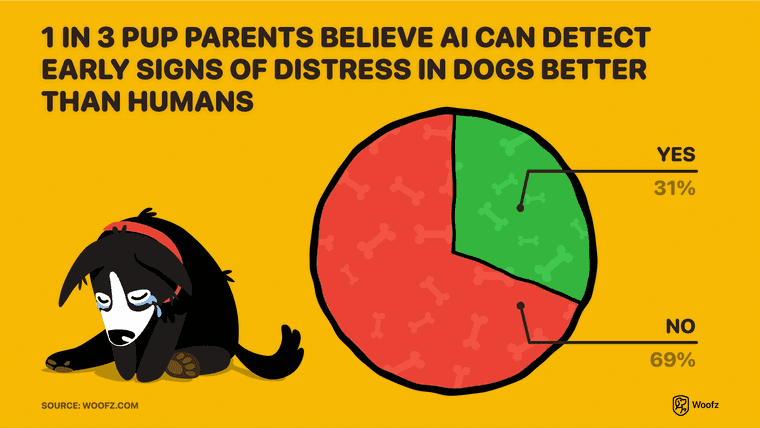
One of the earliest pet tech innovations to benefit from AI? Dog fitness trackers that double up as health monitors – keeping a close eye on behavioral norms and vital signs to offer a helping paw when your furry friend isn’t acting themselves. With the ability to analyze data at scale and spot subtle changes, 31% of dog owners now believe AI can detect the early signs of distress in dogs more accurately than humans.
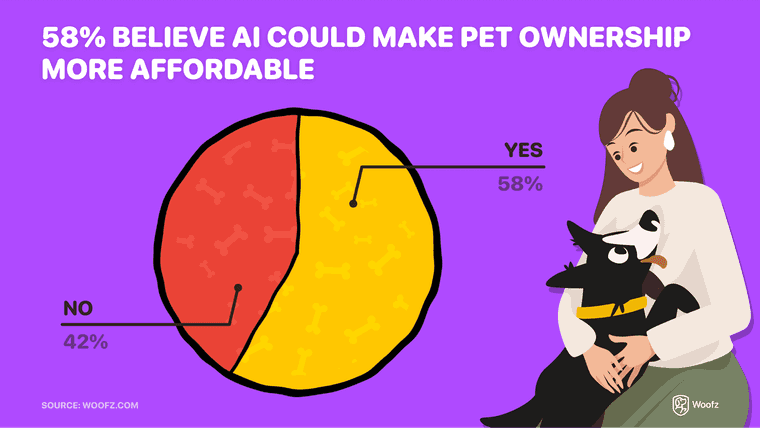
Food, insurance, grooming, training, vet visits, toys… For many, the cost of pet ownership presents a barrier, but AI might change that. With virtual vets, automated feeding systems, and AI training apps, 58% of dog owners believe automation could make pet ownership more affordable and accessible.
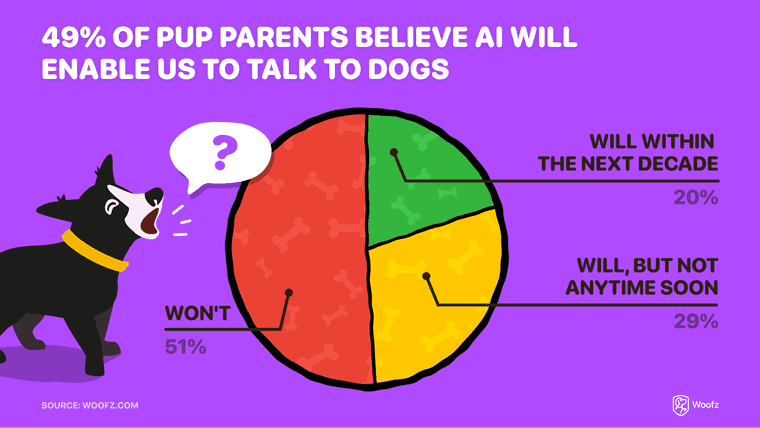
But what dog owners crave most is a deeper connection with their pets. Advances in machine learning are already enabling researchers to decode barks, growls, and whimpers, while startups are developing chatbots that mirror pets’ personalities and behaviors, leading many to believe owner-pet communication might not be far off. Some 49% of dog owners believe AI will enable us to talk to our furry friends, with 20% expecting a breakthrough within the next decade.
Good bot: Is AI really good for our pets?
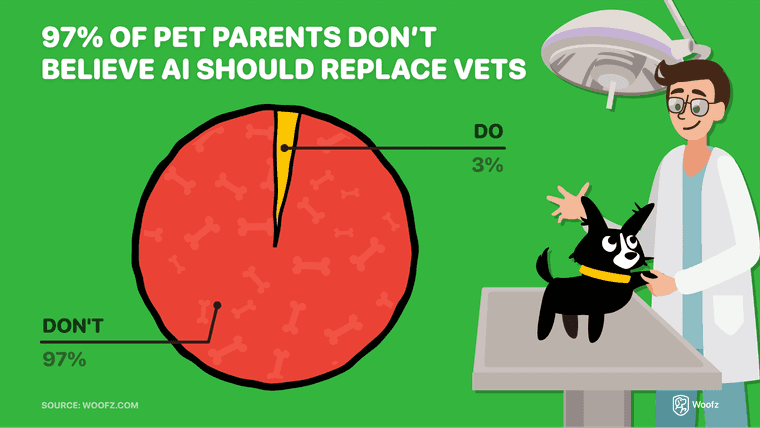
Despite the growing role and extraordinary promise of AI in pet care, most pet parents draw a clear line when it comes to replacing the professionals they’ve trusted for years. While many embrace technology for quick advice and accessible training, 97% say that algorithms should never replace human vets entirely.
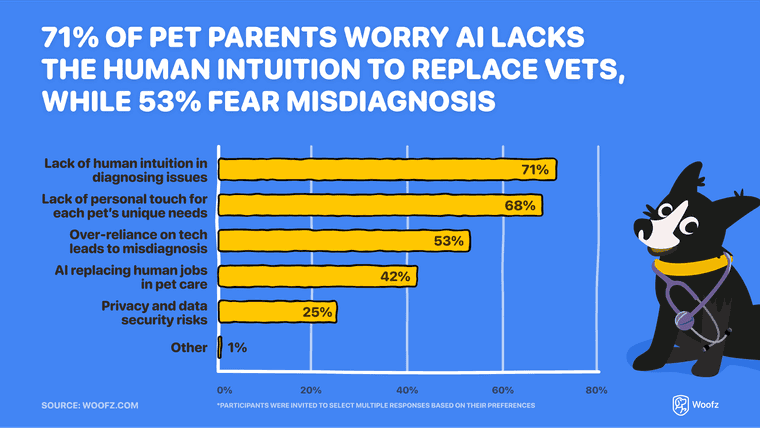
Despite AI’s promise, it hasn’t got every pet owner’s tail wagging. Some 71% believe that AI lacks the human intuition to truly understand what’s wrong when our pets are unwell. Likewise, 68% fear it will fail to consider their pet’s unique needs, while 53% worry relying too heavily on tech will lead to misdiagnosis.
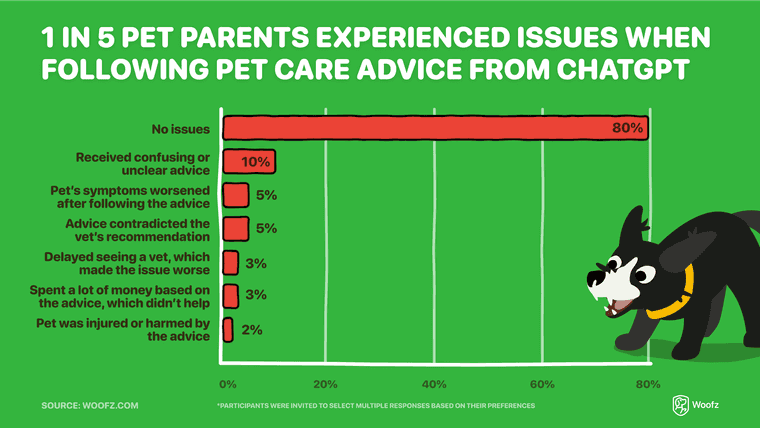
Some pet parents admit their experiences with ChatGPT have been a little ruff around the edges – 10% report receiving unclear advice, while 5% say AI’s recommendations contradicted their vet’s expertise. However, for the majority, turning to ChatGPT has been a walk in the park, with 80% reporting no issues with its ability to assess symptoms and offer helpful advice.
It’s all about balance. While smart pet technology may not be ready to replace every aspect of pet care, it’s proving to be an invaluable companion. You might start your day with an AI-powered training program before following up with a virtual consultation from a real vet. It’s about blending the convenience of tech with the human touch to ensure your pet is happy, thriving, and healthy.
Methodology: The data in this report derives from a survey conducted by Woofz. The survey was launched in April 2025. In total, 2,000 dog owners were surveyed, and all respondents took the full survey. All genders, ethnicities and age groups over 18 years old were included in the study.

Passionate team dedicated to help pet owners raise safe and obedient dogs, fostering meaningful connections with their furry companions.